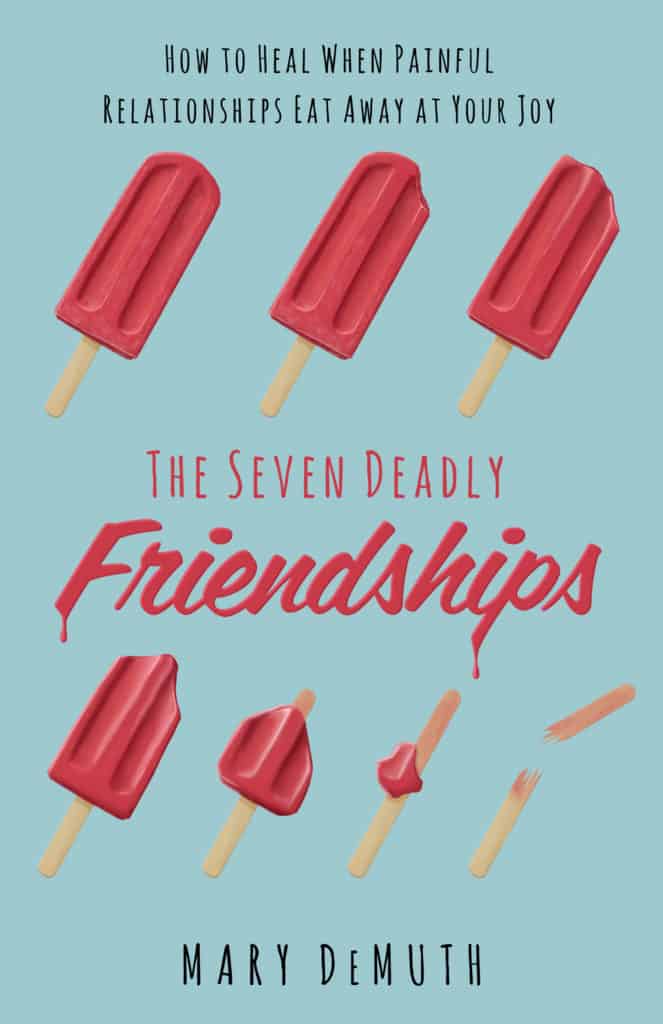We’ve possibly grown numb to the cavalcade of abuse allegations both within and outside the church. Recently the Grand Jury investigation in Pennsylvania went public. Willow Creek is reeling in the aftermath of allegations against its founder, Bill Hybels. A well known missions agency is dealing with one woman’s painful story of one of their own. Last week, Publisher’s Weekly posted a story about sexual harassment allegedly happening in Christian writing conferences. If you would like to see a microcosm of the brokenness of the church, simply read the comments on that post or many like it. (And be assured, this is just one story of many, repeated in many industries, associations, churches and ministries).
There is such a thing as secondary victimization (though I’m not wild about the word victim). It happens when the survivor finally (after years of fear, difficulties, and after effects of abuse) tells their story and instead of mercy and empathy, they receive hostility, unbelief or shaming.
- What did you wear?
- What vibe were you giving off?
- Why didn’t you slap them? I certainly would have.
- Why did it take you so long to report?
- Are you sure it happened?
- Have you owned your own sin in the interaction?
I am over these kinds of wholly uninformed, loveless responses. Can you imagine Jesus asking these questions of victims?
But I’m even more over the well-articulated repentances of caught offenders.
We must remember a few things about serial sexual predators.
They are practiced
They spend a lifetime perfecting their techniques. Theirs is not a crime of convenience (where a victim just happened to come across their path), but of continual, dogged, almost-job-like preparation. They study. Like a velociraptor, they learn. And try new techniques. They’re almost like magicians in their ability to practice sleight of hand and word.
They are charming
They get away with serial predation precisely because they’re charming. They know how to befriend and be kind to 98% of the population and seek out the vulnerable. They tell the vulnerable 2% that no one would believe even if they did tell. Why? Because they are typically not the person you’d expect to be a predator. The 98% is part of their overall plan. In 98% of their lives, they’re upstanding, helpful, generous, funny, self-deprecating, “honest,” and engaging.
So if or when victims bring something to light, so few believe them. Why? Because who wants to believe that your amazing friend is actually a wolf in sheep’s clothing! Surely not! Surely the #metoo movement has gone crazy, and now every accusation is false. Knowing just how hard it was for me to disclose my own abuse, I know that the grand majority of people who quietly whisper their abuse are telling the truth.
They can spin
It’s particularly telling in the writing industry, but it’s also true elsewhere. Predatory people have learned how to spin a story to demean and demoralize a victim to such an extent that after you read or hear their words, you’re convinced the predator is the victim.
Be very, very cautious about a predatory person who plays on your empathy. Be very, very wary of a person who demeans their accusers or gossips maliciously about anyone who has brought an accusation to light.
They repent only when they’re exposed
While true repentance can happen when someone is caught in the act (I’m thinking of Matthew 18 here or the man caught with his father’s wife in Corinthians), if a predatory person repents only after exposure, be cautious. There’s a vast difference between saying eloquent words of repentance after being caught and actually quietly repenting, asking forgiveness of each victim, and working toward restorative justice.
What about redemption?
But let’s say the predatory person actually has repented. Shouldn’t we offer grace immediately? Aren’t we people of redemption? And who are we to cast stones? Wouldn’t we be better off looking at our own sin? Isn’t it gossip to refer to the Publisher’s Weekly article?
It is not gossip to expose predators. It’s telling the truth for the sake of preventing future victims. When they began harming others, they relegated their “right” to privacy.
And in terms of casting stones, yes, of course we examine ourselves. But what if our introspection means we don’t report very real predation? What if society operated that way? What if I knew that a person was a murderer and would most likely murder again? Would I refrain from reporting simply because I, too, struggle with sin? How ridiculous is that? My own sin struggle is a separate issue from being an agent of justice. My greater allegiance must be to the One who made us, who calls murder (and rape) wrong. My allegiance must be to protect the innocent.
My friend Jennifer wrote this:
Forgiveness – biblical or otherwise – never entails the dismissal or denial of consequences. Quite the opposite in fact. This carte blanche, faux grace is as insidious as it is heretical. Grace is never to be a cloak for vice and true repentance – the real, original word – involves turning & going the other way. Not a bit about trumpeting your newfound victimhood or hiding behind some kind of childish squeal of “can’t touch me, i’m safe cuz i said the Magic Words!” The response of these folks is garbage. Fear-fueled, people-pleasing, ear-tickling garbage.
Besides that, redemption is more nuanced than blindly inferring it upon perpetrators. First, if the predator is fake-repentant, offering them quick, cheap grace simply emboldens and empowers them to continue in their predatory behavior unchecked. Do you really want that to happen?
And if the predatory person has abused their power, it would be unkind to them and to future victims to welcome them back into that arena of temptation.
However, so many stories all over the world and all over Christendom favors the redemptive narrative to the detriment of further victims. Abusers are allowed to do the predatory shuffle–to move from publishing house, to position of authority, to speaker, to luminary. Which makes it even harder for victims to speak up. The fame and believability of the one in power overshadows the “small” story of the abused.
And let’s not forget that this is not about sex. This is not about consensual affairs. This is about coercive control and abuse of power.
Even so, let’s say the person has truly repented (more than just feeling bad about being exposed, but a genuine horror at the damage they’ve done to others). Even if he or she repents and asks for forgiveness and goes to therapy to understand their demons (which is an important part of the eventual restoration process), it doesn’t negate two very important things:
- Ethical standards have been violated (and, in some instances, crime has occurred).
- The victim remains harmed, and is left to deal with the aftermath of the abuser’s actions.
Which leads to a story:
The Hit and Run Analogy
I equate a serial perpetrator to an unruly drunk driver. Perhaps they’ve been caught in smaller indiscretions before, warned many times, or maybe they’ve gotten away with it for years. Even so, on one particular day, this drunk driver jumps a curb and hits an unsuspecting pedestrian.
(And it doesn’t matter what that pedestrian was wearing).
Then the driver flees. A hit and run.
He or she begins to believe that there are no repercussions for driving drunk. So they keep doing it. Keep jumping curbs and harming people–people who have to go to the hospital, who enter rehab to learn how to walk again, who will never be the same.
Let’s say there are 30 victims. No repentance. No getting caught. Just more drunk driving, more harm, more brazen confidence–all while the drunk driver publicly excels in others areas, seemingly unaffected by what they’ve done.
Then one day, the investigator on all these cases uncovers that they didn’t realize there were cameras in all the accident areas. So they catch the drunk driver on camera and arrest the person. The drunk driver, faced with extremely incriminating evidence over the span of years, confesses, then “repents.”
Even so, they cannot take back the harm. The hit and run happened (many times, many lives). It devastated the pedestrians who will battle injuries for life, whether or not the driver repented. Their “repentance” cannot negate the crime, nor can it erase the damage done. For their sake, the victims (in order to move on with their lives without bitterness) may have forgiven the drunk driver, but even that forgiveness does not erase the aftermath.
In a legal situation, the drunk driver will be prosecuted, and if they ever get out of prison, they’ll most likely not be allowed to operate a car again, or they’ll have to breathe into a device to be able to start their car. And the victims will have the right to file civil cases against the driver to be recompensed financially for all the pain, medical care, and damages done to them.
In the case of sexual assault or harassment, these situations seldom darken the courtroom, and victims seldom sue. But the analogy stands. EVEN IF the person repents, that doesn’t make everything happy again, tied up in a bow.
Zaccheus and Repentance
When I think of genuine repentance and restoration (because I do love a good redemption story), I remember Zaccheus who broke bread with Jesus in his home in Luke 19:
Zaccheus stopped and said to the Lord, “Behold, Lord, half of my possessions I will give to the poor, and if I have defrauded anyone of anything, I will give back four times as much.” And Jesus said to him, “Today salvation has come to this house, because he, too, is a son of Abraham. For the Son of Man has come to seek and to save that which was lost.” (Luke 19:8-10).
Zaccheus experienced true repentance. He looked back on his life, saw his sin against others, and chose willingly of his own volition to do whatever he could to pay restitution. Once he declared his intentions before Jesus, salvation graced him. He moved from crooked tax collector to redeemed follower of Jesus, and the bridge to that glorious place was a repentance backed by restorative action. It is my sincere prayer that those who have preyed on others will find this kind of redemptive path.
…
But let’s be careful, friends. Let’s be discerning when someone (who has multiple victims) claims repentance. Just because the person is nice or seems sad for getting caught, remember that there are people aching in the aftermath of their predation, and that even their repentance cannot remove what has already been done.
…
I explore predatory people in my upcoming (October release) book, The Seven Deadly Friendships. You can take a quiz to find out if you’re in a predatory (or narcissistic) relationship here.


0 Comments